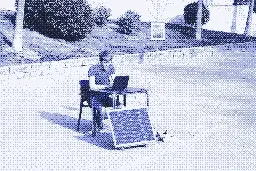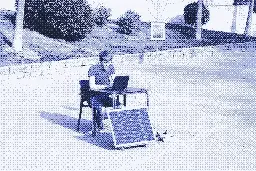Direct Solar Power: Off-Grid Without Batteries | How we can minimize expensive, ecologically damaging battery storage by changing how we think about energy
Direct Solar Power: Off-Grid Without Batteries | How we can minimize expensive, ecologically damaging battery storage by changing how we think about energy

Using solar panels without backup infrastructure makes renewable energy production much more affordable, efficient and sustainable.


